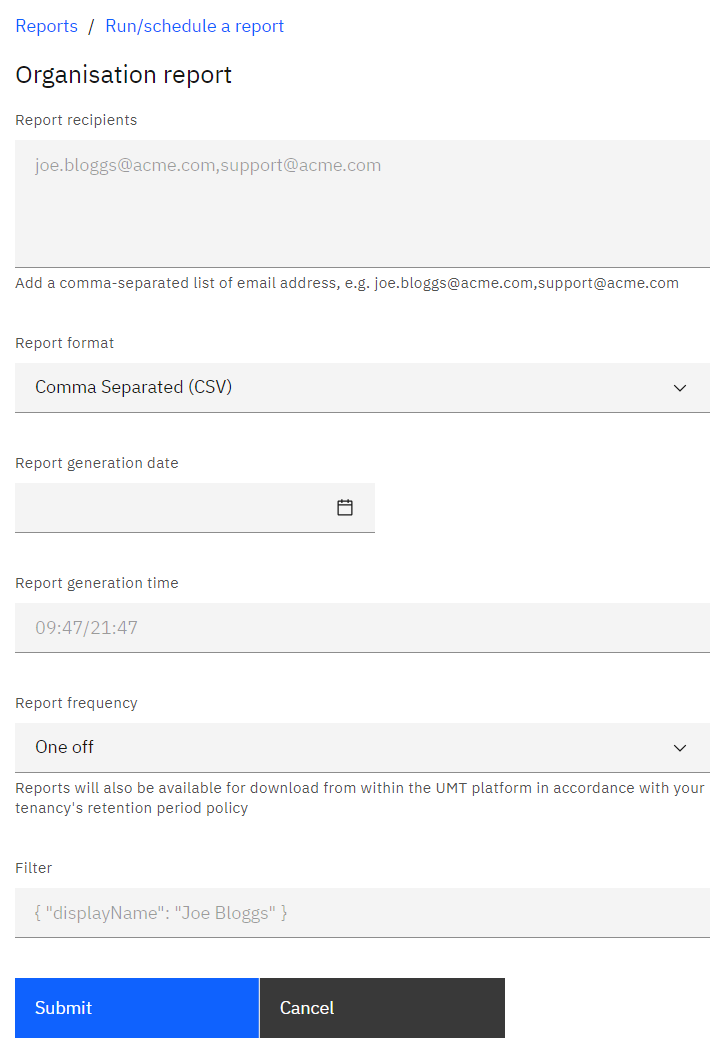Generating reports
There are four types of report that can be generated in UMT:
- Organisation report
- Users report
- User’s contracts report
- Activity report

This will bring you to the schedule a report page. Fill in the details for that report:

Report attributes
|
Attributes |
Description |
|
Report recipients |
The email addresses of
the recipients of the report, separated from each other with a comma ",". |
|
Report format |
The desired
file format (CSV, PDF, XLSX or DOCX). |
|
Report generation
date |
The date to produce
the report in the format "dd/mm/yy". |
|
Report generation time |
The time of
day that the report will be generated, formatted in 24-hour time as "hh:mm", e.g. 16:45. |
|
Report frequency |
How frequently the report will run. |
|
Filter |
Criteria to
filter the report. |
Filtering reports
Report filters are formatted as JSON objects, the attributes are the full names of the attributes as defined within the schema.
{"attributeA":"value"}They can have logic operators applied to them to trigger on specific criteria.
Logic operators and ($and), or ($or) can be chained together within an array to target users that meet all criteria.
The below example filters for users called John Doe:
{ "$and": [ { "givenName" : "John" } , { "familyName" : "Doe" } ] }The below example filters for users called John or Jim:
{ "$or": [ { "givenName" : "John" } , { "givenName" : "Jim" } ] }Mathematical operators can also be used for filters, this includes.
- $lt (less than)
- $lte (less than or equal to)
- $gt (greater than)
- $gt (greater than or equal to)
- $eq (equal to)
NOW is a function that represents today's date which can be subtracted to or added to get dates before or after today.
The below example filters users if their end date is 30 days from today:
{ "umt.endDate" : { "eq" : "NOW+30" } }